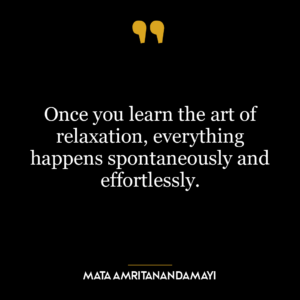This quote suggests that the ability to rest, to find peace and calm within oneself, is a more significant achievement than conquering cities, which symbolizes external accomplishments and material success. The quote emphasizes the importance of inner peace and tranquility over worldly achievements or power.
In the context of personal development, it highlights the importance of self-care, mental health, and emotional well-being. The ability to rest could mean the ability to let go of worries, to be content, and to be at peace with oneself. It could also mean the ability to pause, reflect, and recharge. This is often more challenging than relentless pursuit of external goals, as it requires self-awareness, emotional intelligence, and discipline.
In today’s fast-paced, achievement-oriented society, this quote is particularly relevant. People often prioritize external accomplishments, such as career success, wealth, and social status, over their mental and emotional well-being. This can lead to stress, burnout, and other mental health issues. Therefore, the ability to rest, to find balance and peace within oneself, is indeed a greater and more important achievement.
Furthermore, the quote could also be interpreted as valuing the quality of life over the quantity of life. It is not about how many cities one can conquer, but how much peace one can find in one’s life. It suggests that true success lies not in constant doing and acquiring, but in being able to be still and content.
In conclusion, this quote is a reminder to value our inner peace and well-being, to take time to rest and recharge, and to cultivate a balanced, content, and peaceful life. It encourages us to redefine our understanding of success, to include not just external achievements, but also our mental and emotional health and well-being.












